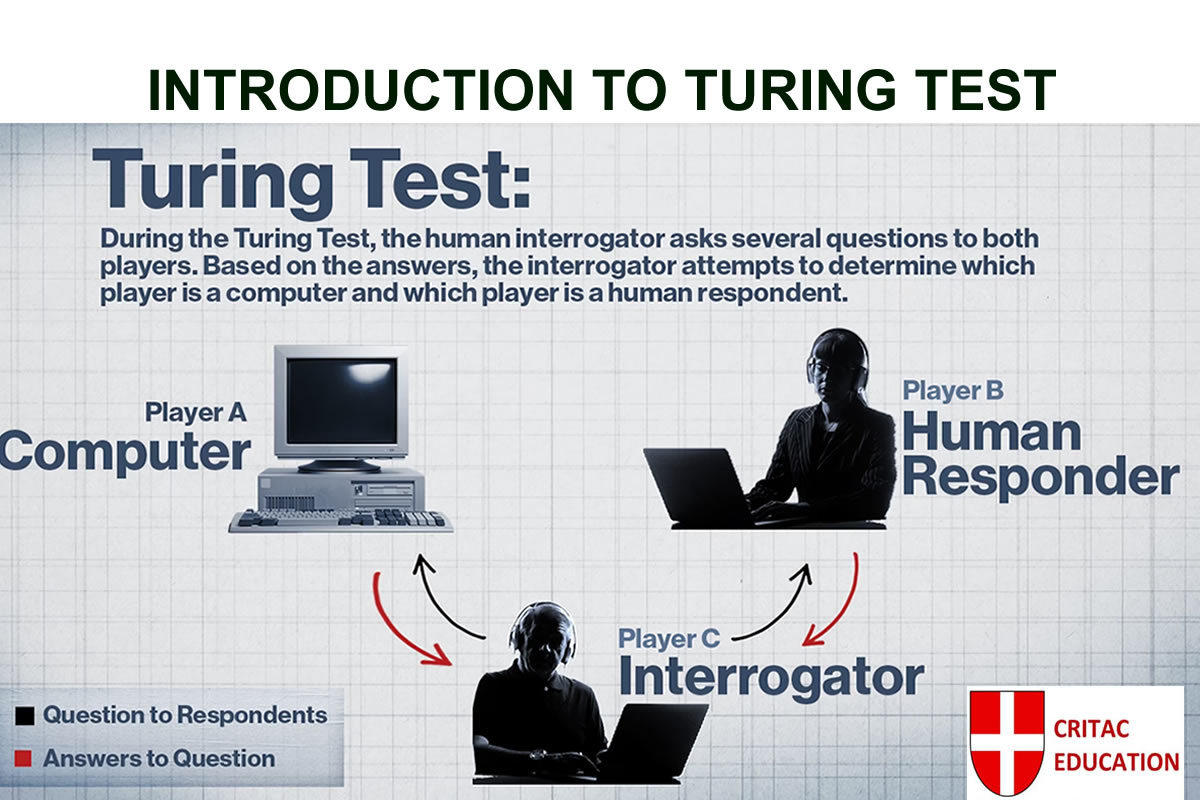This course provides a comprehensive introduction to the Turing Test, a foundational concept in artificial intelligence (AI) and machine intelligence evaluation. Participants will explore the origins, variations, criticisms, and modern applications of the Turing Test, as well as alternative approaches to evaluating machine intelligence.
The course begins by establishing the foundations of the Turing Test, explaining its conceptual framework and the principles behind assessing machine intelligence through human-like interaction. Participants will gain insights into the original formulation of the test by Alan Turing and its significance in AI research and philosophy.
Throughout the modules, participants will learn about the different types of Turing Tests and variations developed over time, including text-based tests, visual tests, and interactive tests. They will examine the methodologies and challenges associated with each type of test, as well as their implications for measuring machine intelligence.
Moreover, the course explores criticisms and limitations of the Turing Test, addressing common challenges such as the Chinese Room argument, the role of consciousness, and the subjective nature of intelligence assessment.
Participants will also explore the evolution of Turing Test-like evaluations in the age of AI, considering advancements in natural language processing, computer vision, and machine learning that have influenced how machine intelligence is evaluated.
Additionally, the course discusses alternative approaches to machine intelligence evaluation beyond the Turing Test, including metrics-based evaluations, benchmark datasets, and task-specific evaluations. Participants will analyze the strengths and weaknesses of these approaches and their relevance in assessing different aspects of machine intelligence.
Furthermore, the course examines the ethical considerations surrounding AI evaluation, including issues related to bias, fairness, and accountability. Participants will discuss the ethical implications of using human judgment as a benchmark for machine intelligence and explore strategies for addressing these concerns.
Finally, the course concludes with a discussion on the challenges and future trends in AI evaluation, allowing participants to anticipate developments in the field and contribute to ongoing discussions on the measurement and assessment of machine intelligence.
Who This Course Is For:
This course is designed for AI researchers, practitioners, enthusiasts, and anyone interested in understanding the Turing Test and its role in evaluating machine intelligence. It is suitable for individuals with varying levels of expertise in AI, from beginners exploring foundational concepts to experienced professionals seeking insights into modern approaches to AI evaluation. Whether you are a student, researcher, developer, or industry professional, this course offers valuable knowledge and perspectives on the Turing Test and its implications for the field of artificial intelligence.
